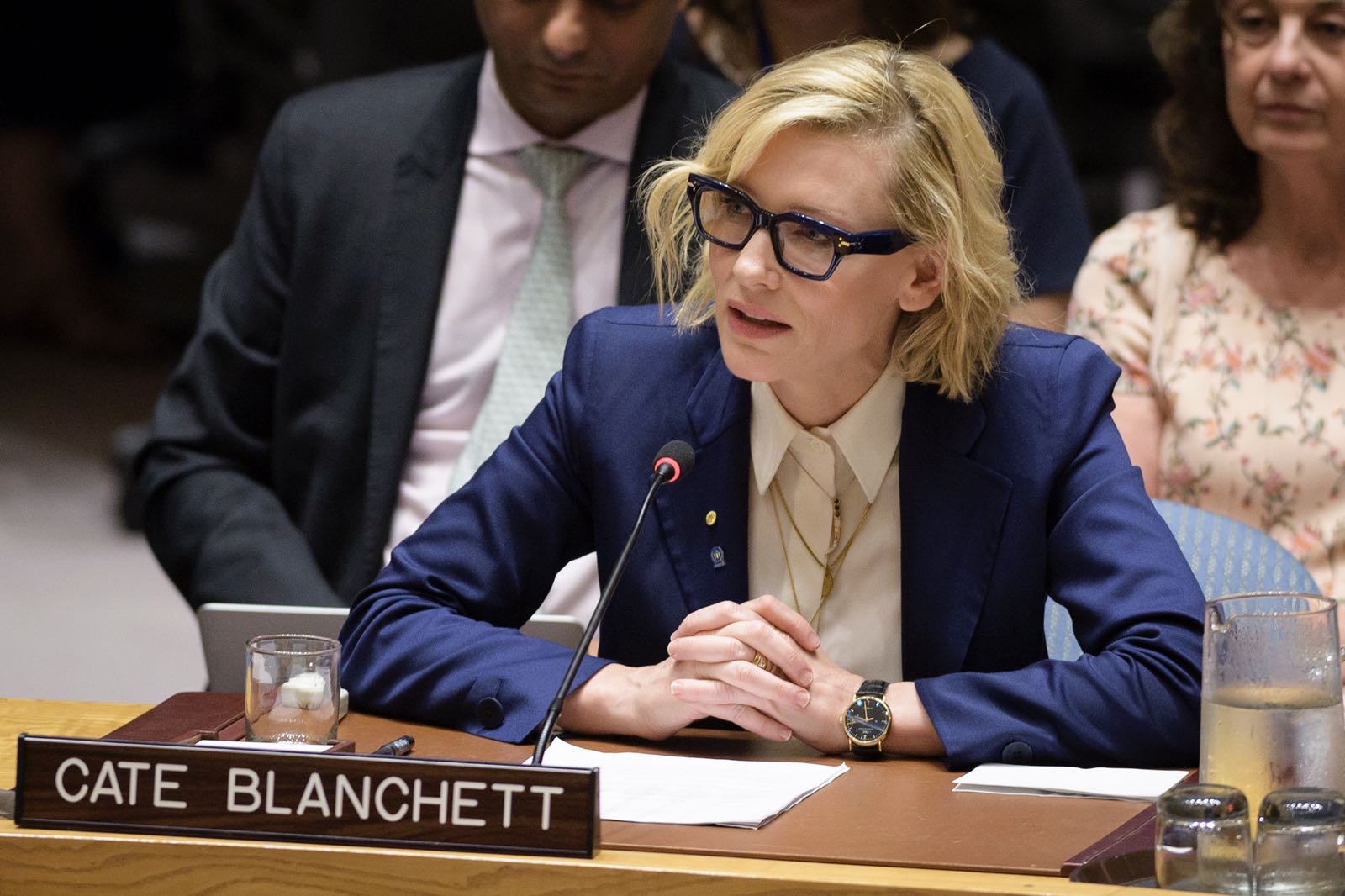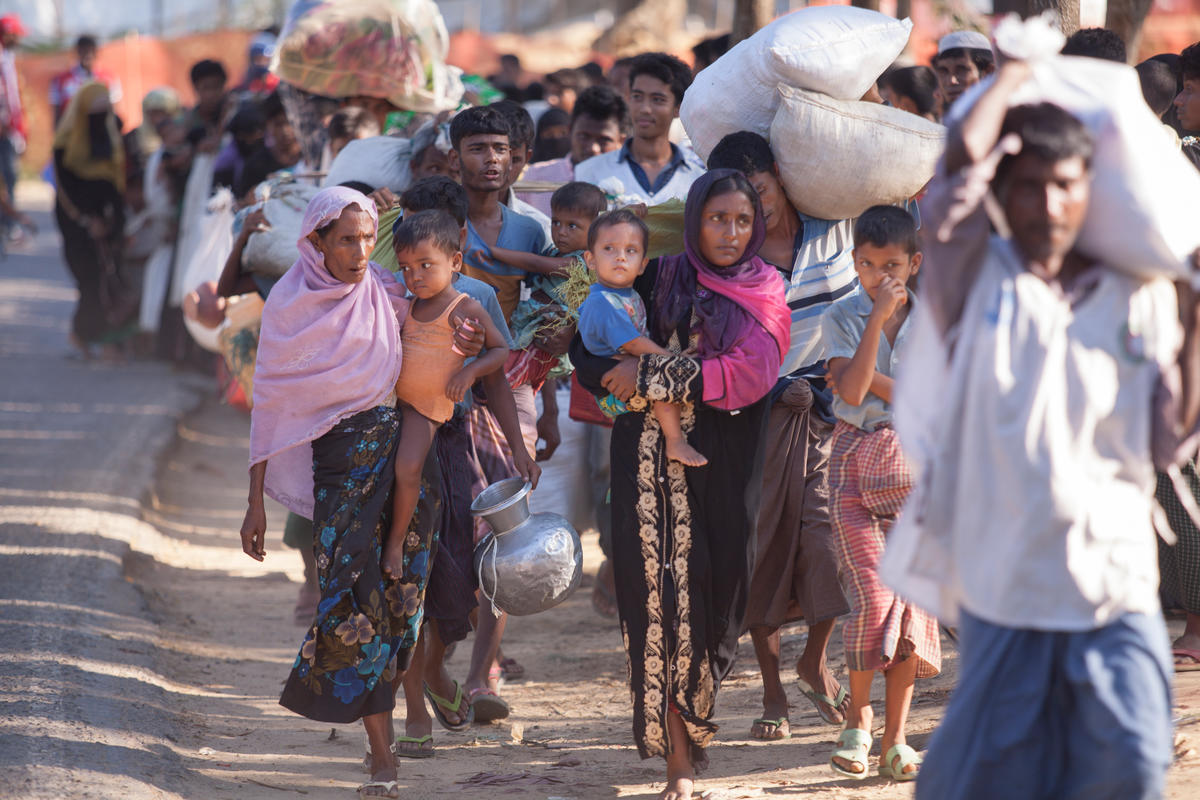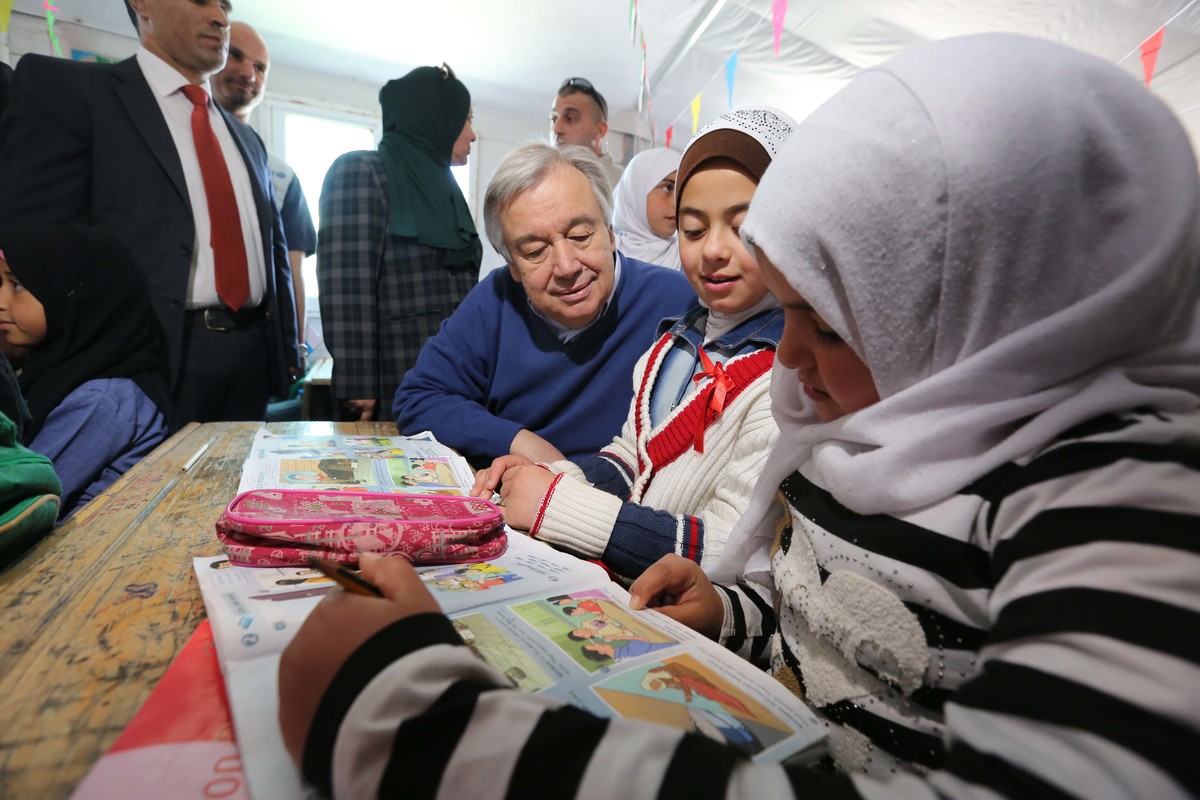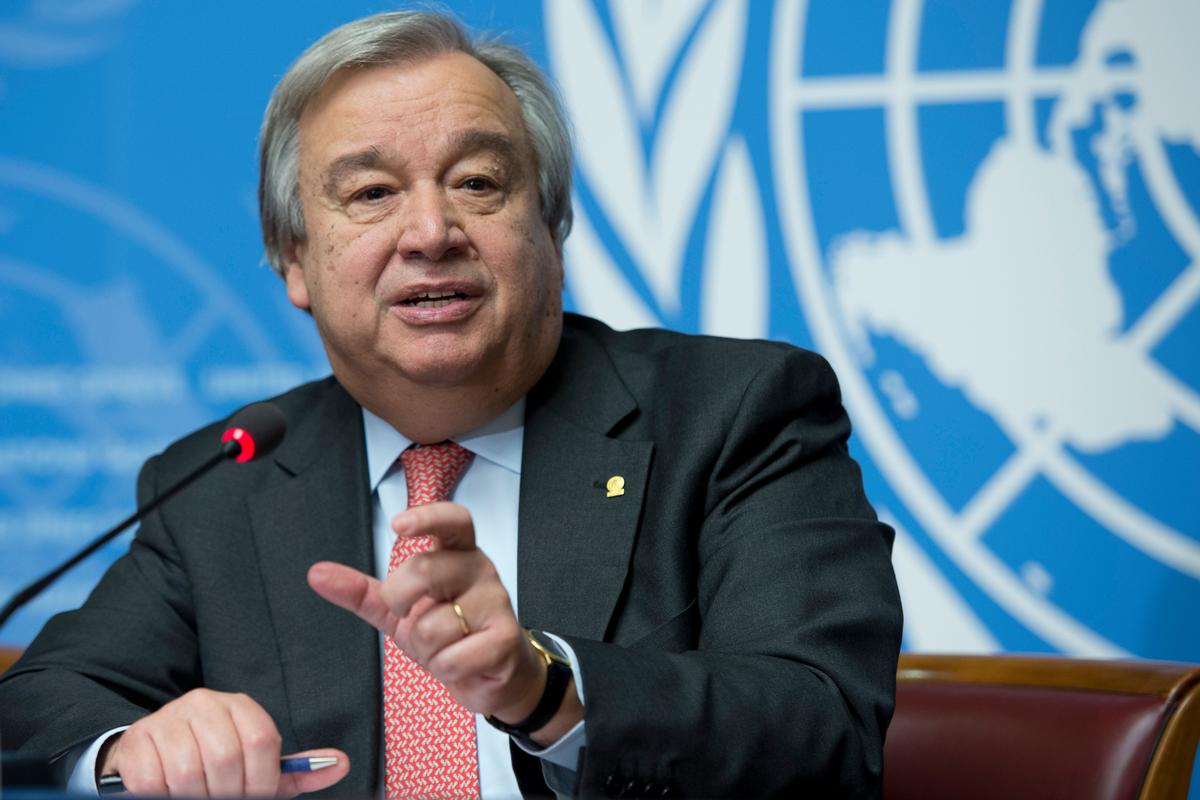High Commissioner ends Pakistan mission as displaced top 1.4 million
High Commissioner ends Pakistan mission as displaced top 1.4 million
High Commissioner António Guterres wrapped up a three-day mission to Pakistan at the weekend and arrived back in Geneva last night (Sunday). He is calling for urgent and massive international help for more than a million people uprooted by the ongoing fighting in the north-west of the country.
According to the latest registration figures just received this afternoon from the North-West Frontier Province (NWFP) Social Welfare Department, which is carrying out registration with UNHCR's help, a total of 1,454,377 people have been registered just since May 2. A total of 1,323,427 of them are living outside of camps, and 130,950 people have been registered in camps. They join another 553,916 displaced people already registered in NWFP who had fled conflict primarily in Bajaur, Mohmand agencies in the Tribal areas and Swat over several months since August 2008, bringing the total number of internally displaced people registered in the province to 2,008,293.
Mr. Guterres says this displacement crisis is one of the most dramatic of recent times. Humanitarian workers are struggling to keep up with the size and speed of the displacement and Mr. Guterres warns of potential destabilization if uprooted people and tens of thousands of host families trying to care for them don't get help fast.
It's like trying to catch something that's moving ahead of us because the number of people on the move every day is so big and the response is never enough. Leaving this population without the support they need - with such massive numbers - could constitute an enormous destabilizing factor.
During his mission, Mr. Guterres met several displaced people in visits to sweltering camps in the Swabi area, north-west of Islamabad, and in Kachagari near the city of Peshawar on Saturday. All were anxious to go home.
Both the Government of Pakistan and the United Nations are expected to issue appeals this week seeking funds from donor nations to aid the displaced and the families hosting them. Mr. Guterres called on the donors to remember the decades of generosity that Pakistan showed to millions of Afghan refugees on its territory. It's a matter not only of generosity, but one of enlightened self-interest.
We know these are tough economic times, but we believe the same international community that has found billions to rescue financial systems also has an obligation to rescue people in need.
With the majority of people staying outside of camps, UNHCR is stepping up its assistance to them. Tomorrow (Tuesday), UNHCR's NGO partner, SRSP, will distribute blankets, kitchen sets, plastic mats, buckets and jerry cans to displaced people staying in three schools in Mardan district. An estimated 67 schools are hosting displaced people in the Mardan area based on our assessments of spontaneous settlements so far. This figure could rise, however, as our field teams continue their assessments of spontaneous settlements and how best to provide assistance.
Meanwhile, as temperatures rise in north-west Pakistan, UNHCR is working with the provincial government on a package to provide some relief from the heat for camp dwellers. We are urgently sourcing shade cloth and poles to construct sun screens over and between tents.
UNHCR has worked in Pakistan for more than three decades. In this latest crisis, we have helped establish several displacement camps, provided thousands of tents and other shelter material and distributed tonnes of aid items as part of a united UN response. We also work with authorities on registration of the displaced. Last week, we airlifted 120 tonnes of additional UNHCR relief supplies from our regional stockpile in Dubai. Most supplies, however, are locally procured in Pakistan.








